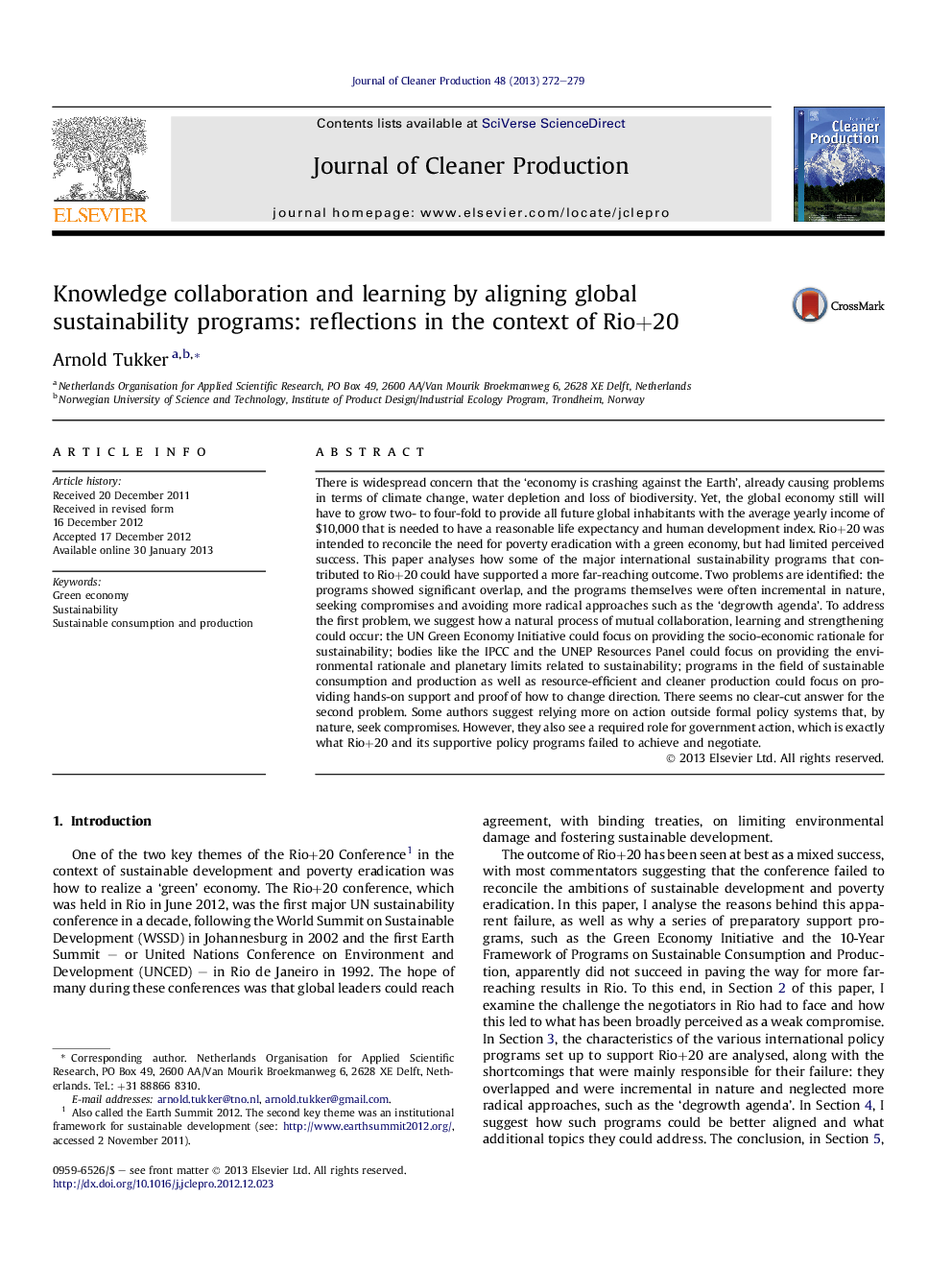| Article ID | Journal | Published Year | Pages | File Type |
|---|---|---|---|---|
| 1745422 | Journal of Cleaner Production | 2013 | 8 Pages |
There is widespread concern that the ‘economy is crashing against the Earth’, already causing problems in terms of climate change, water depletion and loss of biodiversity. Yet, the global economy still will have to grow two- to four-fold to provide all future global inhabitants with the average yearly income of $10,000 that is needed to have a reasonable life expectancy and human development index. Rio+20 was intended to reconcile the need for poverty eradication with a green economy, but had limited perceived success. This paper analyses how some of the major international sustainability programs that contributed to Rio+20 could have supported a more far-reaching outcome. Two problems are identified: the programs showed significant overlap, and the programs themselves were often incremental in nature, seeking compromises and avoiding more radical approaches such as the ‘degrowth agenda’. To address the first problem, we suggest how a natural process of mutual collaboration, learning and strengthening could occur: the UN Green Economy Initiative could focus on providing the socio-economic rationale for sustainability; bodies like the IPCC and the UNEP Resources Panel could focus on providing the environmental rationale and planetary limits related to sustainability; programs in the field of sustainable consumption and production as well as resource-efficient and cleaner production could focus on providing hands-on support and proof of how to change direction. There seems no clear-cut answer for the second problem. Some authors suggest relying more on action outside formal policy systems that, by nature, seek compromises. However, they also see a required role for government action, which is exactly what Rio+20 and its supportive policy programs failed to achieve and negotiate.
